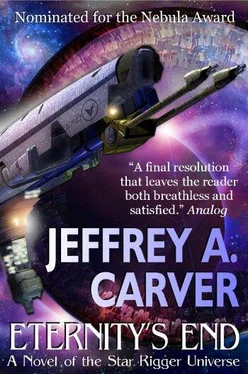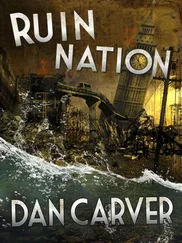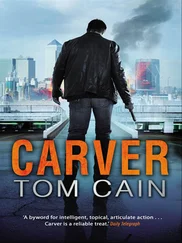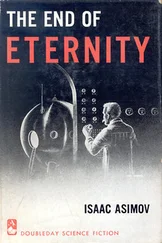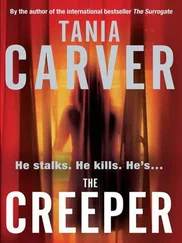“I know that area,” Legroeder said. Seeing incomprehension on Morgan’s and Harriet’s faces, he explained. “In the Flux, you know, space itself flows in currents, like rivers and streams—which is how rigger ships move, as well. But the Sargasso is a dead zone, where almost all motion ceases. It’s deadly for ships, because you can be stranded—just like old-time sailing ships that were sometimes becalmed, and left drifting helpless in the middle of an ocean.”
“That is correct,” said El’ken. “And that is where the pirates left them. Only a handful of crewmembers remained alive on the warship, and they subsisted for a long time on the remnants of the ship’s stores. Eventually, they drifted to the edge of the region, but at that point they had no functional net controls.”
“Jesus,” said Legroeder.
“Exactly,” said El’ken. “They were nearing the end of their supplies when a ship appeared. Robert—who had received severe head wounds in the battle—lost consciousness and knew almost nothing of what happened from that time until much later. But he never saw his crewmates again.
“The next clear thing he knew, he was on a ship coming into port—Faber Eridani, to be precise. He had been treated for his wounds, and his facial structure had been rebuilt. He had also been given neural implants. Though the implants helped maintain his brain function, his rescuers did not install them for altruistic reasons.”
Morgan stirred at the mention of implants. “Like your friend Jakus?” she asked Legroeder.
“I do not know of this Jakus, nor do I know why you people insist upon continually interrupting,” said the Narseil. “But yes, he’d received implants of considerable sophistication. It was, I imagine, like having a robot intelligence constantly interacting with his own intelligence. They provided much memory support to replace cognitive faculties he’d lost due to his injuries. But they also, at times, tried to control him.” The Narseil paused. “Yes, I know—that’s what worries you about all implants. An understandable, but not entirely accurate, worry. At times, Robert’s appeared dormant, benign, and he could almost forget that they were there. But they never stopped working.”
“Working for whom?” asked Legroeder.
El’ken gazed at him piercingly. “I think you know.”
“The pirates? He didn’t look like a man who was under the control of Golen Space pirates.”
“I did not say he was ‘under the control’ of the pirates. I said that the implants tried to control him. But he fought them—subtly, so as not to be in obvious rebellion. For thirty years he fought them! You wonder why he secluded himself, why he lived in a small fortress in the wild? It was because he dared not let others see the struggles he fought. At times, it was a near thing. At times, he almost succumbed to their control. Indeed, he had to do some of their bidding to persuade them of his usefulness. But ironically, it was partly because of his torment that he was so devoted to gathering and preserving information. His passion for the truth was his own private bulwark against the encroachment of this other power.” El’ken paused, and for a few moments his eyes and thoughts seemed focused on something very far away.
“But why didn’t he have the implants removed?” asked Morgan.
“Ah,” said the Narseil. “The implantation was too thorough. The augments were bonded, not just to his cerebral cortex, but also to his—what is the word?—autonomic nervous system. He went to several specialists, but in the end they determined that the integration was so complete that there was no way to remove the implants without killing him in the process.”
“Just like Maris,” Legroeder muttered. “The bastards.”
El’ken gave a stiff-necked nod. “And so he lived, and fought his silent, lonely battle, all those years. Until, presumably, the day you came to visit. Now, perhaps, he is at rest.”
“But what did they want with him? Why did they bother?” Legroeder asked.
“Indeed,” said El’ken. “Did they send him back as a spy? As a weapon to be held in reserve for some future need? Probably both.”
“Then,” said Morgan, “in a way it might have been a blessing that he died in the fire.”
“That may be,” El’ken said. “But a very sad blessing, nevertheless.”
Legroeder’s thoughts flickered back to McGinnis’s last cries to them… to their escape from the house, somehow under attack… the dog shuddering in a seizure, as though it were under attack… and the smoke and fire billowing under the impenetrable security field. The memory was profoundly disturbing.
El’ken rustled his neck-sail. “What’s important now, I think, is not what drove McGinnis, or drove against him—but the information he fought so hard to preserve.”
“Which is now entrusted to us,” Harriet said.
“Yes. Not just to preserve, but to use . Would you excuse me a moment?” The Narseil walked along the gravel pool perimeter, until he stood under a stone overhang. A soft spray of water came on, misting him. He made a sound like a weary sigh, then came back to sit again on the bench seat. “Forgive me. It is my skin. It grows dry, these days. But Robert sent you to me to learn about what really happened in the War of a Thousand Suns. And so I will tell you.”
“Is there a connection to what happened to him?” Legroeder asked.
“In a way there is. Yes…”
* * *
The old Narseil knew far more about human history than Legroeder did—probably more than all three of the humans put together. He spoke softly, almost as if addressing a group of students.
The War of a Thousand Suns (he said) actually involved between thirty and forty human worlds. It was in many respects a conflict between two divergent elements of starfaring humanity: the so-called Kyber worlds and the human Centrist Worlds. The Kyber had embraced highly sophisticated neural implants of all kinds—and as a people, had all but subsumed their humanity in a maelstrom of cybernetic consciousness. The Centrist Worlds, on the other hand, espoused separation from cyber-consciousness, declaring this to be an essential foundation of human reality.
“But the Centrists won,” said Legroeder, realizing even as he said it how thin his knowledge was.
“Did they, now?” asked El’ken. “Do you really know what happened to the Kyber—what they were then, and what they’ve become?” The Narseil hissed softly. “I thought not,” he said, and continued his explanation.
The Kyber were a frantically creative and yet dangerous element of humanity. Though they resided largely in off-planet locations, such as asteroids and artificial habitats, they sought leadership over a proposed, massive, migrational movement inward through the galaxy, toward rich clusters of promising star systems. Indeed, it was for this region of space that the war was named—though in fact the war had as much to do with racial prejudice and economic position as it did dreams of far-flung colonies. Still, the Kyber claimed ludditism on the part of the Centrists, a claim not without some justification. But neither were the Kyber innocent victims. Arrogant and ruthless, they commanded the finest technology in the human realm, including weapons technology.
And yet, despite their technological advantage, the Kyber lacked the numbers and the internal cohesion needed to fight effectively against the joined forces of the Centrist Worlds. In the end, they lost the war. But they exacted a terrible price from the Centrist Worlds, in destruction and social disorder.
“But what does all this have to do with the Narseil? You said that—”
“We were betrayed—yes!” barked El’ken, eyes glinting. “A betrayal which to this day has never been acknowledged—though it changed the course of both human and Narseil history.”
Читать дальше
